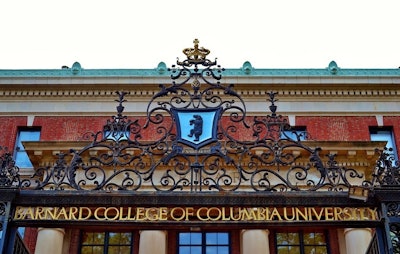
The settlement, announced Monday in a joint statement with advocacy groups Students Against Antisemitism and StandWithUs Center for Legal Justice, requires Barnard to establish new oversight mechanisms and restrict certain forms of student protest activity. The lawsuit was filed in February 2024 on behalf of Jewish and Israeli students who claimed the college failed to address harassment during pro-Palestinian demonstrations.
Under the agreement, Barnard will adopt the International Holocaust Remembrance Alliance's definition of antisemitism, which includes certain critiques of Israel among its examples. The college will also appoint a new Title VI coordinator to investigate discrimination complaints and produce annual reports on antisemitism.
The settlement has drawn criticism from faculty who argue it could chill legitimate academic discourse.
The controversy reflects broader tensions on college campuses nationwide as institutions grapple with balancing free speech protections with creating inclusive environments for all students, particularly amid ongoing conflict in the Middle East.
Perhaps most significantly for campus life, Barnard agreed not to recognize, meet, or negotiate with Columbia University Apartheid Divest, the student coalition that organized encampments last spring calling for divestment from companies doing business with Israel. The group represents a merger of multiple student organizations across both Barnard and Columbia.
The settlement also restricts student demonstration activities, including banning face masks at protests when used to "intimidate or interfere with enforcement" of school policies. Students will face expanded disciplinary jurisdiction for off-campus conduct, including social media posts.
The Trump administration has increased pressure on universities to address antisemitism complaints, with Columbia already agreeing to policy changes under federal threat. These developments have raised questions about institutional autonomy and the role of external pressure in shaping campus policies.
Barnard President Dr. Laura Ann Rosenbury, defended the agreement as reflecting "our ongoing commitment to maintaining a campus that is safe, welcoming, and inclusive for all members of our community." The settlement requires the college to communicate a "zero tolerance" policy for harassment of Jewish and Israeli students beginning next semester.
However, critics argue the measures may disproportionately impact pro-Palestinian student voices and limit legitimate political expression. The settlement's requirement that Barnard's endowment not be used for "penalizing the government of a country" effectively prohibits divestment actions, a common form of student activism.

















